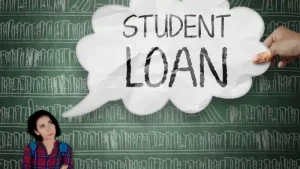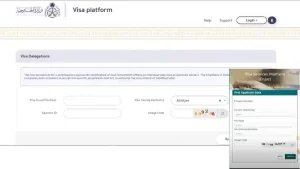What is the interest rate on student loans?
The interest rate on student loans can vary widely depending on the type of loan. Federal Direct Loans have a fixed interest rate that is set each year by Congress and re-evaluated every July 1st. For the 2020-2021 academic year, the current rates are 4.30% for undergraduate loans, 5.30% for graduate or professional degree loans, and 6.60% for PLUS loans (for parents).
read more: What happens if you don’t pay student loans?
Private lenders also offer student loans that may have variable or fixed interest rates that can be higher than federal loan rates, so it’s important to compare different options before selecting one.
Student loans can be a great tool for financing your higher education, but it’s important to understand the interest rate associated with them.
The most common interest rate for Federal student loans is currently 4.53%, although this number may vary depending on the type of loan and when it was taken out. Private lenders typically charge higher interest rates than federal ones, so make sure you compare all of your options before making a decision.
read more: How to refinance student loans? [Secret trick]
What are Student Loan Interest Rates Right Now?
Student loan interest rates vary widely depending on the type of lender and the specific loan that is taken out. For example, federal student loans have fixed interest rates set by Congress, while private lenders typically offer variable interest rates based on creditworthiness. Currently, federal direct subsidized and unsubsidized loans for undergraduate students have a fixed rate of 2.75%, while graduate students can expect to pay 4.30%.
Federal PLUS Loans for parents and graduate students carry a higher rate of 5.30%. Private student loan lenders may charge anywhere from 2% to more than 15%, with some requiring an origination fee as well as other fees associated with taking out the loan. Before signing up for any kind of student loan it’s important to research all your options carefully in order to find the best possible deal that fits your budget.
Why are Student Loan Interest Rates So High?
Student loan interest rates can be quite high, often much higher than other types of loans. This can make them difficult to pay off as the amount owed grows quickly with interest added on top of the principal balance. The reason student loan interest rates are so high is because they are not backed by collateral like a home mortgage or car loan.
Instead, lenders rely solely on borrowers’ creditworthiness and income potential to determine how likely they are to repay their debt. Additionally, since students typically don’t have an established credit history yet when taking out a student loan, lenders may view them as more of a risk and charge higher interest rates accordingly. Furthermore, government-backed student loans generally offer lower fixed rates than private loans due to subsidies from the federal government which help offset some of that risk for lenders.
Ultimately though it is important for prospective borrowers to understand what kind of rate they will be paying before committing to any long-term debt obligation in order to ensure repayment terms remain manageable over time.
What Will Student Loan Interest Rates Be in 2023?
It is impossible to accurately predict what student loan interest rates will be in 2023 due to many factors that could influence the rate, such as political and economic conditions. However, it is likely that student loan interest rates will remain relatively stable over the next several years. The current federal student loan interest rate for undergraduates is 4.53%, while graduate students pay 6.08%.
These interest rates are based on a formula set by Congress and adjusted annually by July 1st of each year based on changes in the 10-year Treasury Note index rate from June of the previous year plus an additional margin determined by Congress.
Therefore, if there is minimal fluctuation in this index rate over the next few years then we can expect similar or slightly higher student loan interest rates for 2023 than those currently available today; however, if there are significant fluctuations within this index then we may see more drastic changes come into play when determining future federal student loan interest rates for 2023.
Why is It So Hard to Pay off Student Loans?
Student loans have become a major stressor for many college students and alumni alike. With the cost of college tuition rising each year, it can be difficult to keep up with payments on student loan debt – especially when so much of your income is already allocated towards rent and other bills. The interest rates on these loans are also notoriously high, which means that even if you make regular payments, it can take years before you’ve paid off your whole balance.
Furthermore, once you do pay off your entire loan amount, there’s often no “reward” in terms of lower interest rates or better repayment options – meaning that borrowers are stuck paying the same fees until their balance is zero.
Lastly, there isn’t always an escape from student debt: unlike credit card debt or other forms of borrowing which could potentially be discharged through bankruptcy proceedings; student loan debts cannot usually be eliminated in this manner – meaning that borrowers must continue making payments until their balance is fully repaid. All these factors make paying off student loans incredibly challenging for most people who take them out.
Average Student Loan Interest Rate Private
The average student loan interest rate for private loans can vary depending on the lender and other factors such as credit score, but generally, it is around 8-9%. It’s important to shop around to get the best deal when looking for a private loan. Many lenders offer incentives such as no origination fees or lower interest rates for automatic payments, so make sure you compare different options before making your decision.
Student Loan Calculator
A student loan calculator is an invaluable tool for college students as it can help them plan their budget and determine how much they need to borrow in order to cover tuition fees and other associated costs. The calculator takes into account the duration of the loan, interest rate, repayment period and other factors to provide a detailed breakdown of total cost over time. With this information, students can make informed decisions about their loan options and create realistic plans for repaying debt after graduation.
read more:
- What happens if you don’t pay student loans?
- How to refinance student loans? [Secret trick]
- What is second-degree murder? [easy explanation]
- What Can You Do With A Sociology Degree? [Expert opinion]
Student Loan Interest Rate Calculator
A student loan interest rate calculator can be a great tool for students to use when trying to understand the true cost of their education. This type of calculator allows students to input their loan amount, repayment term, and other pertinent information in order to calculate the exact interest rate they will be paying on their loans. With this knowledge, students can make more informed decisions about how much they should borrow, what types of loans are best for them, and how long it will take them to pay off their debt.
Student Loan Interest Rates 2023
As of 2023, interest rates for federal student loans are set to remain relatively low. All undergraduate students taking out direct subsidized and unsubsidized loans will have a fixed rate of 4.3%. Direct PLUS loan borrowers, including graduate and professional students, will pay 5.3% in interest on their loans.
Private lenders may offer even lower or higher rates depending on the borrower’s creditworthiness and other factors.
Student Loan Interest Rates by Year
The interest rate for student loans in the United States has fluctuated over the years. In 2020, federal student loan interest rates were set at 2.75% for undergraduate students, 4.30% for graduate students, and 5.30% for Parent PLUS loans. These rates are lower than those seen in 2019 which were 4.53%, 6.08%, and 7.08%.
It is important to note that private lenders may offer different interest rates than those set by the federal government depending on credit history and other factors such as where you live or your school of choice.
Student Loan Interest Freeze
The federal government recently implemented a student loan interest freeze, giving some relief from the burden of student loans. This policy freezes the accrual of interest on all federally held student loans until September 30th, 2021. During this time, borrowers will not have to make any payments or accrue any additional interest charges on their loans.
This could provide significant financial assistance to those struggling with debt and help them keep more money in their pockets during these uncertain times.
Unsubsidized Loan Interest Rate Calculator
Using an unsubsidized loan interest rate calculator is an excellent way to estimate the amount of money you will need to pay back when taking out a loan. This tool takes into account your current income, credit score and other factors in order to determine the interest rate that would be applied on the loan. It can help you decide if taking out a particular type of loan is financially feasible for you before committing to it.
Student Loan Payment Calculator
Using a student loan payment calculator can be an invaluable tool when budgeting for college. It allows you to enter information like the amount of your loan, interest rate, and term length so that you can see what your estimated monthly payments would be. With this information at hand, it’s easier to plan ahead and save up enough money each month to pay off those loans quickly and efficiently.

Conclusion
In conclusion, the interest rate on student loans can vary greatly depending on the type of loan and when it was taken out. It is important for students to research all their options before taking out a loan so that they can find the best possible terms for their situation. Additionally, making payments early or regularly can also help lower overall interest costs in some cases.
Ultimately, understanding what affects your student loan’s interest rate is key to managing debt responsibly.
You have to wait 15 seconds.



